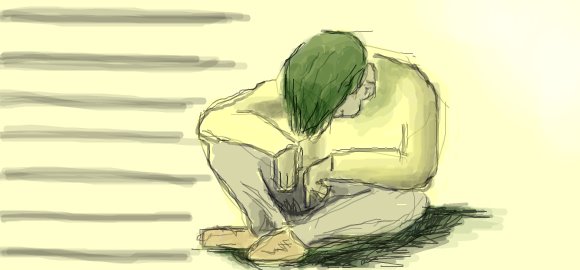PERSPECTIVES IN THE EVOLUTION OF CHRISTIAN AND SECULAR PHILOSOPHIES IN ASTHETICSProfession # 3
From here, the question is where did these men go wrong? Were did their beliefs, and thusly their philosophies, have holes? Francis Schaeffer give a clear insight into what was lacking in He is There and He is Not Silent:
"Some Greeks had an idea that the polis, the society, could supply the universal. But the Greeks were wise enough soon to see that this was unsatisfactory, because then one is right back to the 51 percent vote or the concept of a small elite....So the next step was to move back to the gods, on the grounds that the gods can give something more than the polis can give. But the difficulty is that the Greek gods (and this includes Plato's gods) simply were inadequate. They were personal gods...but they were not big enough....All the classical gods put together were not really enough, which is why...in the concept of fate, in Greek literature, one never knows for sure whether the Fates are controlled by the gods, or whether the Fates control the gods....There is constant confusion between the Fates and the gods as the final control. This expresses the Greeks deep comprehension that their gods simply were not adequate."
The Greeks were in constant awareness that they could find no satisfying conclusion to complete their beliefs. And what is more, the only thing missing from their philosophy was the most pivotal facet, the crux that all their other ideas were really flowing from. The God of Christianity fills this position perfectly.
Augustine made the connection. He studied Plato's forms, found the truth within them, and realized that the mechanics of Plato's philosophy would work if God was plugged in as the power source. Augustine said himself:
“You, Lord, who are beautiful, made [the heavens and the earth] for they are beautiful... Yet they are not beautiful or good or possessed of being in the sense that you their Maker are. In comparison with you they are deficient in beauty and goodness and being.”
Jensen adds that:
"For Augustine, the original attraction of the beautiful was the evidence of divine grace, irresistible, magnetic, and salvific; it was God-initiated, not human-willed. The power pf our recognition stems from the fact that we are created in the image of God, and so share in a marred but original beauty. However, Augustine would add, we need to transcend attraction to beautiful things in creation and focus on the ultimate source of that beauty."
Augustine made an obvious connection between his beliefs and those of the Greeks, and, in the process, actually found the perfect explanation of the way God designed aesthetics.
Since the 1800's the arts have made many rapid changes in face and the philosophies pushing them. One thing is sure though, the majority absence of the church in the field of the arts has had a great effect on the downward progression of the arts. This is simply a reflection of the negative effects of the church's overarching attitude of absence from social interaction.
Schaeffer, Francis, He is There and He is Not Silent, p.35-36.
Augustine, Confessions. trans. Henry Chadwick. Oxford: Oxford University Press, 1991.
Jensen, Robin, The Substance of Things Seen, p.8.





